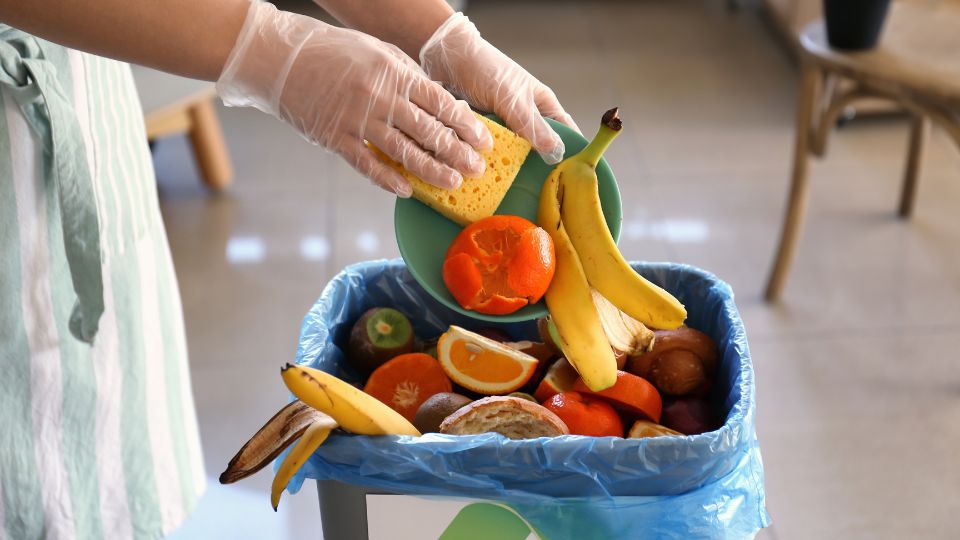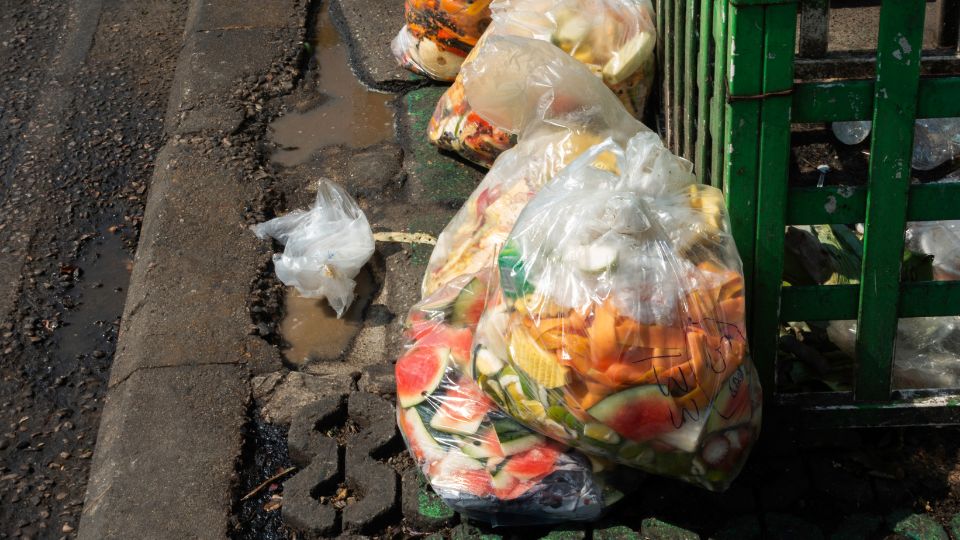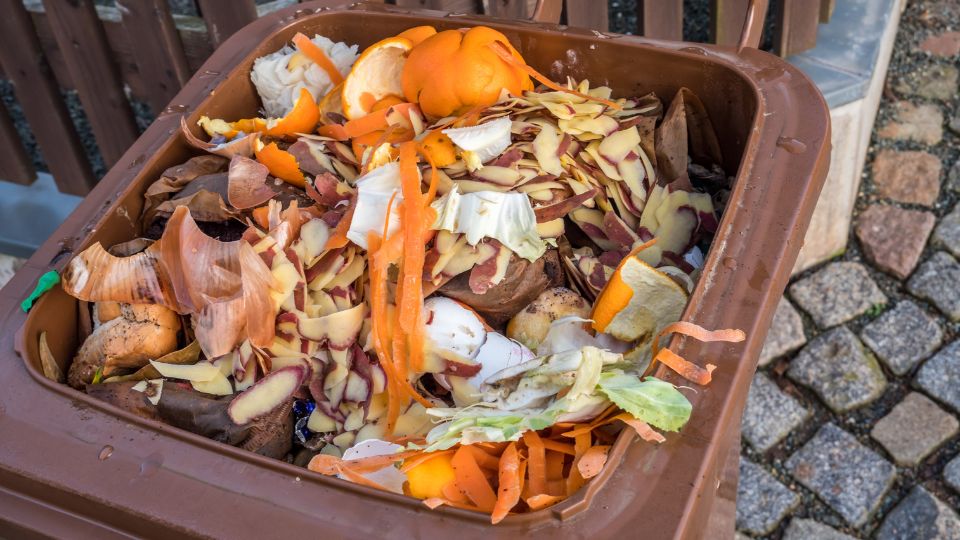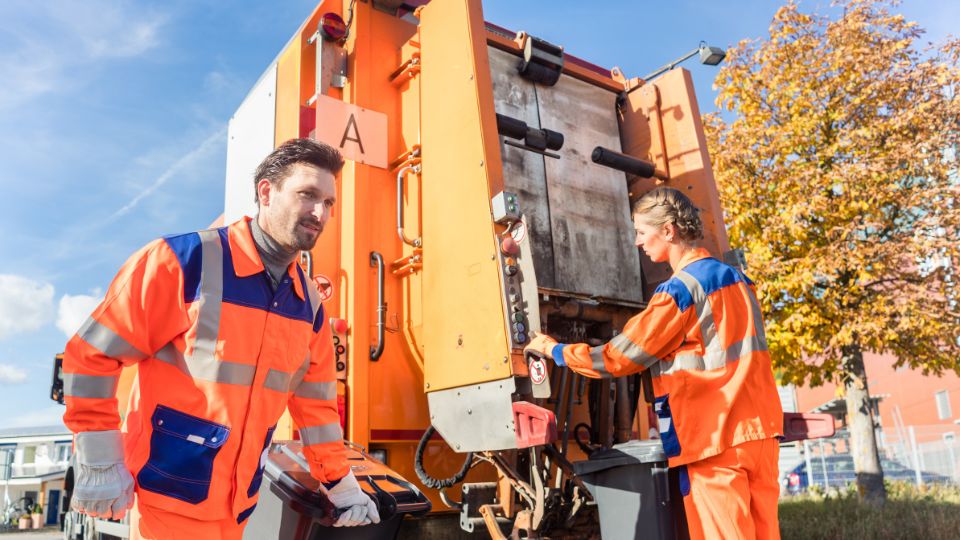
Quick Summary:
- Properly managing food waste by using designated food waste bins can help UK businesses reduce their environmental impact, comply with regulations, and save on disposal costs.
Effective waste management is essential for businesses looking to cut down on their environmental impact and comply with regulations. One of the most impactful areas to focus on is managing food waste.
Knowing which bin to use for food waste can simplify your waste disposal process, boost your sustainability efforts, and even save you money.
This guide is here to help UK business owners understand the ins and outs of food waste disposal.
Table of Contents:
- Why Proper Food Waste Management Matters
- What is a Food Waste Bin?
- How to Identify the Correct Bin
- Benefits of Proper Food Waste Bin Usage
- Conclusion
Why Proper Food Waste Management Matters

Food waste accounts for a significant portion of commercial waste in the UK.
WRAP estimated that in 2021, total food waste in the UK amounted to 10.7 million tonnes, with 10% of that coming from restaurants and food services.
Incorrect disposal can lead to an increase of food waste in landfills but it also results in the release of harmful greenhouse gases like methane.
By properly managing food waste, businesses can:
- Reduce Environmental Impact: Properly composted food waste turns into valuable compost, enriching soil rather than polluting the environment.
- Comply with Regulations: Adhering to local council guidelines and national waste regulations helps avoid fines and ensures compliance.
- Enhance Reputation: Demonstrating a commitment to sustainable practices can improve your brand image and customer loyalty.
What is a Food Waste Bin?
A food waste bin is a designated container specifically for the collection and disposal of organic waste these can often be placed in bin stores in a colour-coordinated manner with other waste bins.
This includes:
- Leftover food scraps
- Expired or spoiled food items
- Peelings and trimmings from fruits and vegetables
- Coffee grounds and tea bags
- Eggshells and nutshell
How to Identify the Correct Bin

In the UK, many councils provide businesses with specific bins for food waste. These bins are often colour-coded or labelled to avoid confusion.
Here’s a quick guide:
- Food Waste Bin (usually brown or green): Exclusively for food waste and compostable items.
- General Waste Bin (usually black or grey): For non-recyclable and non-compostable waste.
- Recycling Bin (often blue): For recyclable materials like paper, cardboard, plastics, and metals.
Implementing Food Waste Bins in Your Business
- Conduct a Waste Audit: Assess the types and amounts of waste your business generates to identify opportunities for waste reduction and proper bin placement.
- Train Staff: Educate employees about the importance of food waste segregation and how to use the bins correctly.
- Label Bins Clearly: Use clear signage and colour coding to help staff easily identify which bin to use.
- Monitor and Adjust: Regularly review waste management practices and adjust bin placement or training as needed to improve compliance and efficiency.
Benefits of Proper Food Waste Bin Usage
- Cost Savings: Reducing the volume of waste sent to landfill can lower disposal costs and potentially generate savings from composting services.
- Improved Hygiene: Proper segregation of food waste reduces odours and pest infestations, promoting a cleaner work environment.
- Sustainability Goals: Contributing to a circular economy by converting waste into compost supports sustainability initiatives and corporate social responsibility goals.
Conclusion
Correctly using a food waste bin is a simple yet effective way to enhance waste management practices. By understanding which bins food waste goes in and implementing proper disposal methods, businesses can achieve significant environmental and economic benefits.
Start today by evaluating your current waste management system and making the necessary changes to ensure food waste is disposed of responsibly.
Embrace sustainable practices, reduce your environmental impact, and join the growing number of businesses committed to better waste management.







